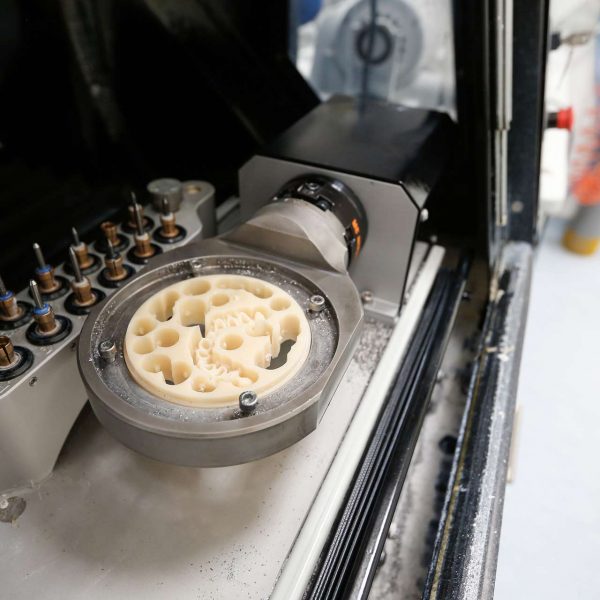Dental Implants or Root Canals
Patients and dentists frequently faces a complex dilemma - either or not to save a tooth utilizing a root canal therapy and also a permanent restoration, or remove this tooth and replace it with a dental implant and crown. Although some dentists have a strong preference for one treatment or the other dentists treat each patient and each tooth as a special case. Dentists weigh the condition of the tooth, the patient's general health, fiscal considerations, and the patient's preference.
Deep tooth decay and injury may harm the pulp from the tooth. The pulp is the soft inner part of the tooth, it's the portion of the tooth that comprises the blood and guts vessels. The main canal is the hollow part of the tooth that contains the pulp. Root canal therapy usually implies that the dentist removes the pulp from the tooth by means of a hole in the top of the tooth. The dentist fills the hollow tooth down to the tip of the root with a long lasting, rubbery material. In several cases, a hard filling to connect in the gap in the biting part of the tooth is all that's essential to restore the tooth to normal function. A tooth that's under more stress just like a molar, or a tooth which a lot more harm requires a cap or a crown to rebuild it.
The achievement of root canal therapy is not sure, although likely. Occasionally root canal therapy is unable to remove all the pulp or infection. In case the pulp dies due to a crack in the tooth, the root canal therapy won't fix the problem. As cracks are difficult to see and diagnose, sometimes dentists handle cracked tooth without realizing. Occasionally, the form of the main canals is so complicated that it's not possible to completely clean the channels.
Occasionally, teeth are thus broken down by rust or accident that it's not possible to restore these teeth with a crown. Dentists can be capable to fix some tooth with periodontal operation to expose more of a busted tooth. That surgery might expose more of the root of the adjacent teeth that can make those teeth very sensitive and more susceptible to gum disease and tooth decay.
Dentists may try to repair a tooth with a dubious outlook. Afterwards, the patient and dentist might find that restoration is impossible or difficult, or that the doesn't last. Even a strong tooth that gets the root canal therapy and a crown can develops gum disease, decay, or fractures. It's easy to comprehend the value of identification and planning.
Dental implants are artificial tooth roots, made from titanium, that anchor crowns or dentures to the bone. The bone actually knits to titanium. While implants aren't 100% effective, they're even more reliable than the root canal therapy. Cosmetic implant retained crowns are reliable, esthetic, and long lasting restoration. Gum disease, injury, and malocclusion can cause an implant to fail. Implant retained crowns aren't susceptible to tooth decay.
Replacing a tooth with implant takes some time and planning. The restoring dentist that puts the crown on the implant and the surgeon that puts the implant in the bone will take or retake a health history. Dental implants aren't a great option for patients that take some medications like bisphophonates such as Actonel, Aredia, and Zometa. Additionally, uncontrolled diabetics and a few controlled diabetics who don't heal are not great candidates for implant operation. There are various other drugs and medical conditions excluding the implant operation. It's the liability of the surgeon and the restoring dentist to take a full medical history and council their patients respectively.
Solve all dental related problem by Dental Lab in PA
The dentist must make models of the patient's teeth. Then, the dentist or laboratory technician will alter the model to demonstrate the appearance of the new crown. The surgeon relies upon a stent or physical guide to know precisely where to put the implant. The restoring dentist or the laboratory technician generates the stent and sends it to the surgeon. The surgeon must put the implant where the restoring dentist wants it. Never let a surgeon to put a dental implant without consultation with the restoring dentist.
There are other considerations when treating a tooth with root canal treatment or replacing that tooth with a crown retained crown. Time can be a concern. A dentist can be capable to finish root canal treatment and restoration as little as a day. Replacement and removal of a tooth with implant retained crown might only take a few months, however it might take the best part of the year to get preparatory operation, recovery and restoration.
Also know about :- Dentures Philadelphia
Another consideration is the frame of mind of the patient. Does the patient understand the procedures? How does the patient feel about the root canal treatment? How does the patient feel about dental operation? How does the patient feel about shedding a natural tooth?
Finances are a common problem for dental patients. Both wound channel treatment and dental implants are expensive procedures. These processes are time intensive and require the use of equipment and materials. Many patients have dental insurance plans, but insurance agencies cover these procedures and some dental insurance coverage don't cover crowns or implants at all. Ask the dentist or their representative to provide a written estimate of the expenses of treatment including insurance plans if applicable. These remedies might take a very long time to finish. Be sure to notify the dentist and their staff if your coverage changes.
If you face treating or replacing a tooth, talk with your dentist. You may choose to acquire a second opinion. You can have other options than the two in this article. Just you or your dentist or dentists may determine the best treatment for you.
Read More:- Dental implants in PA
Content :- https://bit.ly/2JAgRbW




No comments:
Post a Comment